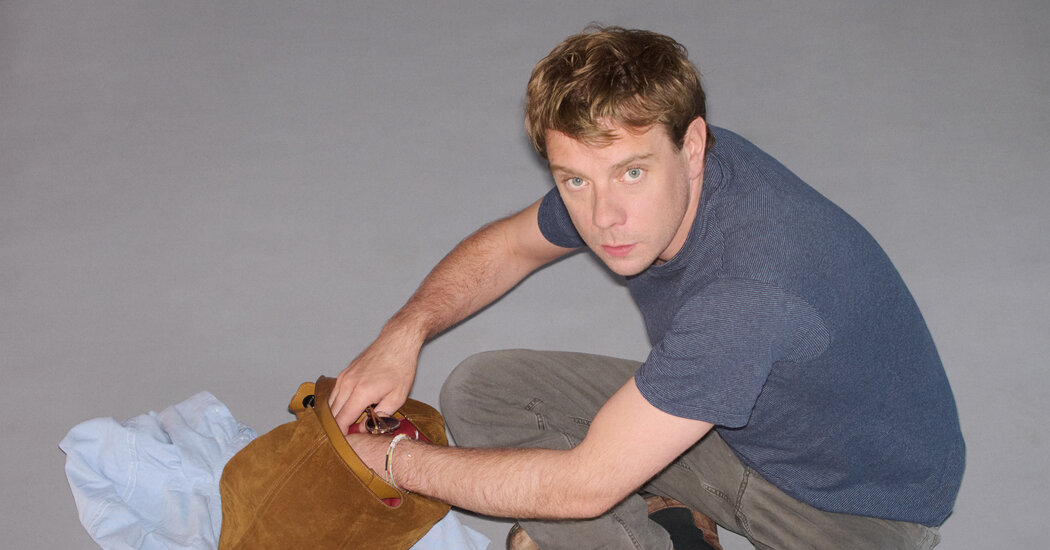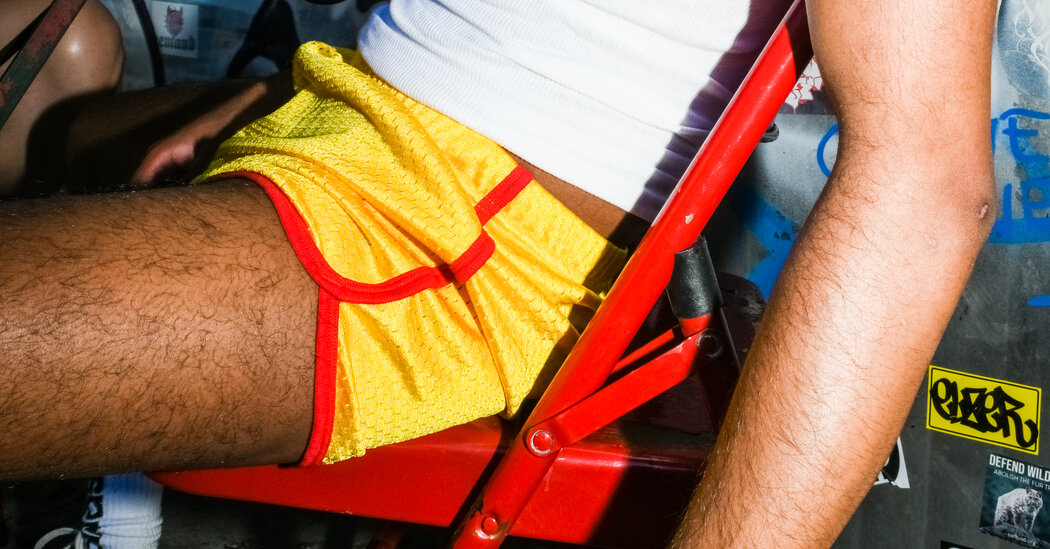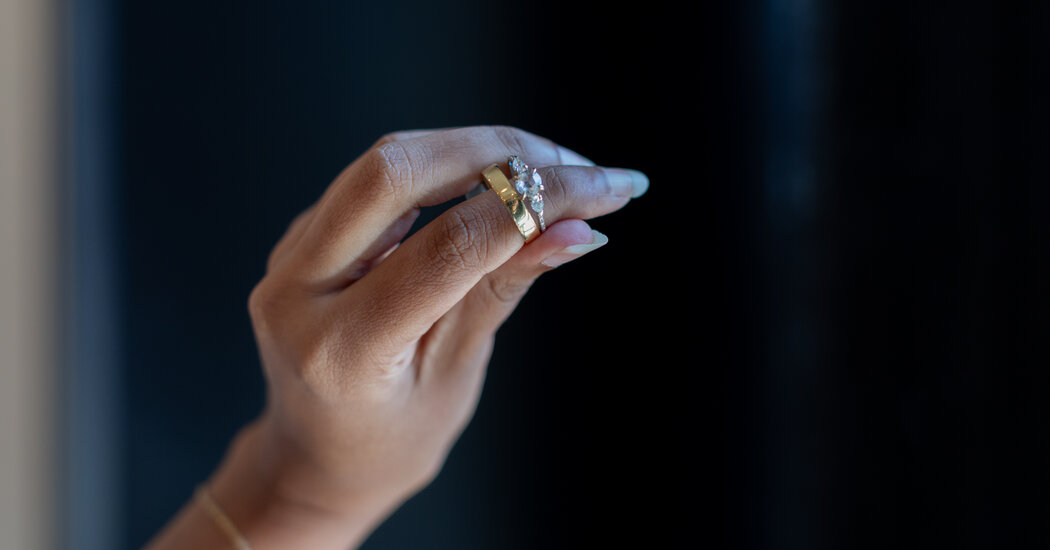Is there a limit on the length of an untucked shirt? I have many very good older shirts that were not made to wear untucked. Is it OK to wear them hanging out anyway? — Robert, Mandeville, La.
Ah, the joy of an untucked shirt! Who wants the uncomfortable constriction of all that material trapped around your waist? Untucking has been a signifier of casual cool since tucking was invented. (When was that? Back in the mists of time when the bottom part of shirts also served as men’s underwear.)
These days, between Casual Friday, the erosion of the office dress code, pandemic lockdowns and comfort dressing, untucking has become ever more popular. Yet it is not quite so simple as just pulling your shirt out of your pants (or skirt). To do untucking effectively, you have to take into consideration the impressions untucked shirts convey and the actual shape of the shirt. Especially those odd appendages known as shirttails.
Shirttails, those tonsil-like bits that hang down at the bottom of a button-up shirt, were meant to be tucked in, given their original function as the veil between one’s outerwear and one’s private bits.
In other words, they were not invented to be seen. That means bodily proportion is not taken into consideration when a designer or tailor considers the shirttail. And therein lies the rub, because proportion is the key to dress. It is also why even after the shirts-as-underwear exigency was no longer relevant, tucking continued.
Tucking in your shirt gives you a waist; it defines the separation between torso and legs. It conveys an impression of control and organization. Untucking changes that proportion and, in doing so, changes the body shape and the ethos. Hence the reason tucking has become a symbol of class, profession and the establishment — or the rebellion against and rejection of all of the above.
In recent years, however, numerous brands have begun to cater to those who want to have their cake and wear it, too. Which is to say: Go untucked, but with a neater effect.
The point is you don’t want your shirt to make your legs look like foreshortened tree trunks by cutting off the line around the top of the thighs. (This is true for any gender.) And you don’t want tons of material billowing around your body, turning you into a giant blob. That makes you more like mad King George running through the palace halls in a nightshirt than, say, Pierce Brosnan on vacation.
According to David Farber, T’s men’s style director, “Through the years as I went on appointments where shirts meant to be worn untucked were being shown, the advice was generally use the middle of your zipper and the middle of your butt as a guideline to where the shirt should fall, because it’s the most flattering angle from front and back.”
You can tell when a shirt has been created with untucking in mind because the shirttails are generally shorter and neatly hemmed; more horizontal or gently curved than tonsil-shaped. There’s an entire brand that caters to the desire to wear untucked shirts called, yes, UNTUCKit. Other options include Proper Cloth and Twillory.
If you already have a closet full of nicely made shirts that you would like to wear untucked, the easiest solution may be to take them to a tailor to get the shirttails adjusted. Even that is not without complications, though. As Derek Guy, the men’s wear critic who blogs at @dieworkwear, pointed out, “Sometimes, the button placement is such that you can’t shorten the garment without the bottommost buttonhole being weirdly close to the hem.”
Mr. Guy said that one solution was to “fold your older shirts where you think you may want them hemmed. Press a hard crease into the fold using an iron, then use pins to keep the excess fabric in place. Now, look at yourself in the mirror and see if you like the new length.”
Or perhaps, more pertinently, the new you.
Your Style Questions, Answered
Every week on Open Thread, Vanessa will answer a reader’s fashion-related question, which you can send to her anytime via email or Twitter. Questions are edited and condensed.







